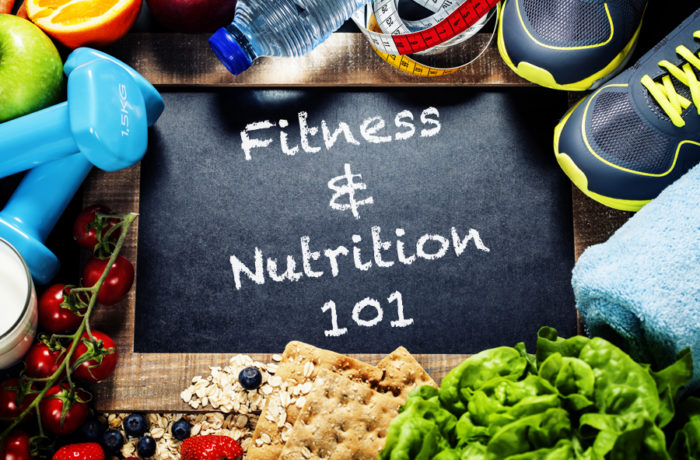Your Path to Higher Education Success
Empowering students with insights and guidance for college degrees.
Eat, Lift, Repeat: The Tasty Triangle of Fitness Nutrition
Discover the tasty triangle of fitness nutrition! Fuel your gains with delicious meals that make eating, lifting, and repeating a joy.
Fueling Your Workouts: The Best Pre- and Post-Workout Meals
When it comes to maximizing the benefits of your workouts, the right pre-workout meals are crucial. A well-balanced meal consumed 30 to 60 minutes before exercising can provide the energy needed to push harder and longer. Some of the best options include:
- Oatmeal with fruit: A bowl of oatmeal topped with banana or berries delivers complex carbohydrates for sustained energy.
- Greek yogurt and honey: This combination offers a protein boost along with fast-digesting carbs, perfect for light workouts.
- Whole-grain toast with avocado: The healthy fats and fiber from avocados can help keep you full while providing energy for your training.
Equally important are your post-workout meals, which play a critical role in recovery. Within 30 minutes after finishing your workout, it's beneficial to consume a meal rich in protein and carbohydrates to replenish lost nutrients and repair muscle tissue. Some top choices include:
- Grilled chicken with quinoa: This meal offers lean protein and complex carbs to fuel recovery.
- Protein smoothie: Blending protein powder with fruits and spinach makes for a quick, nutritious option.
- Egg omelet with veggies: Eggs are a great source of protein, and adding vegetables boosts essential vitamins and minerals.

Balancing Macros: How to Optimize Your Nutrition for Strength Training
When it comes to optimizing your nutrition for strength training, understanding how to balance your macronutrients—proteins, carbohydrates, and fats—is crucial. Each of these macronutrients plays a unique role in supporting your training regimen. Protein is essential for muscle repair and growth; aim for about 1.6-2.2 grams per kilogram of body weight daily. Carbohydrates, on the other hand, provide the necessary energy for intense workouts, making up around 45-65% of your daily caloric intake. Lastly, fats, while often misunderstood, are vital for hormonal balance and should comprise about 20-35% of your total calories. Finding the right balance will not only enhance your strength gains but also improve overall recovery and performance.
To effectively track your macros, consider using a food diary or mobile app tailored for tracking nutrient intake. Start by calculating your daily caloric needs based on your activity level and goals. Once you have your total calories, set specific targets for each macronutrient. For example, if you determine that your daily caloric goal is 2,500 calories, you might allocate 30% for protein (750 calories), 50% for carbohydrates (1,250 calories), and 20% for fats (500 calories). By monitoring your intake and making adjustments based on your progress, you can ensure you’re providing your body with the nutrients it needs for optimal strength training outcomes.
The Role of Hydration in Fitness Nutrition: Are You Drinking Enough?
Hydration plays a vital role in fitness nutrition, as it directly impacts performance, recovery, and overall health. When engaging in physical activities, our bodies lose water through sweat and respiration. If these fluids are not replenished, it can lead to dehydration, which may result in fatigue, decreased endurance, and impaired cognitive function. Athletes and fitness enthusiasts should aim to drink enough water before, during, and after their workouts to maintain optimal hydration levels and enhance their performance.
To assess whether you are drinking enough, consider these hydration guidelines:
- Drink at least 8-10 cups of water each day, adjusting for exercise intensity and climate.
- Monitor your urine color; pale yellow indicates proper hydration, while dark yellow suggests dehydration.
- Incorporate hydrating foods, such as fruits and vegetables, which contribute to your overall fluid intake.